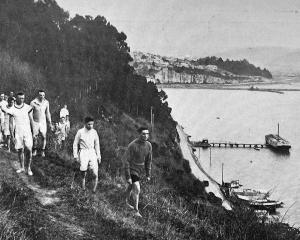What renders the occurrence more particularly unfortunate is that it was accompanied by a great loss of life.
Apparently, between 900 and 1000 French soldiers perished in the wreck, which is doubtless to be attributed to the act - the legitimate act - of the enemy.
The loss of life would seem, therefore, to be nearly as heavy as that which was suffered through the sinking of the British transport Royal Edward in the Aegean Sea in the month of August last.
While the destruction of the Provence and the sacrifice of the valuable lives that were lost in consequence remind us of the risks that are inevitably associated with the transference of troops over long distances in a sea in which the enemy is vigilantly lying in wait for the transports, it is a matter for the greatest satisfaction that disasters of the kind to which this vessel has been a victim have been few and far between.
One of the marvels of the present war, traceable to the power of the allied navies, has been the fact that, while hundreds of thousands of British and French troops have been despatched by sea to different theatres of the war - an operation entailing the employment of scores of steamers which have been continuously engaged for many months in the transport service and have made hundreds of voyages - the enemy has not succeeded in accomplishing the destruction of more than two or three of the transports.
• South Otago farmers are asking that there shall be no prosecutions this year on account of Californian thistles.
The harvest has come on rapidly, and at an earlier date than usual, and there is a shortage of labour.
These facts alone would, they hold, justify the Department of Agriculture in publicly notifying that there would be no prosecutions this year.
But the thistle has ceased to be a terror to farmers.
They declare that it is not the noxious weed it was thought to be, and, if cut as the farmer can find it, and allowed to wilt in the sun, it makes a splendid food for stock just at the time grass is often going off.
Farmers complain that their views have little weight with the department, and they are being urged by some of the more active to lose no chance of putting their case before a Minister of the Crown whenever one visits Otago.
The resentment against prosecutions grows from year to year.
• "What is there a married woman with little time to spare can do'' was a question asked at the meeting of the Women's National Reserve at St Clair last night.
Miss McLean was ready at once with a good answer.
Married women with young families were fully occupied, she said, and they were certainly occupied in the very best possible way for the country.
But perhaps even they might do a little more.
They might look after for part of the day the child of some other woman who was an expert in some particular line, and so free her for national service.
"It would not make much difference, would it,'' said Miss McLean coaxingly, "just to have one or two more children to look after for an afternoon''
The laughter that greeted the question seemed to indicate some doubt on the point among the ladies present. - ODT, 2. 3.1916.
• COPIES OF PICTURE AVAILABLE FROM ODT FRONT OFFICE, LOWER STUART ST, OR WWW.OTAGOIMAGES.CO.NZ











